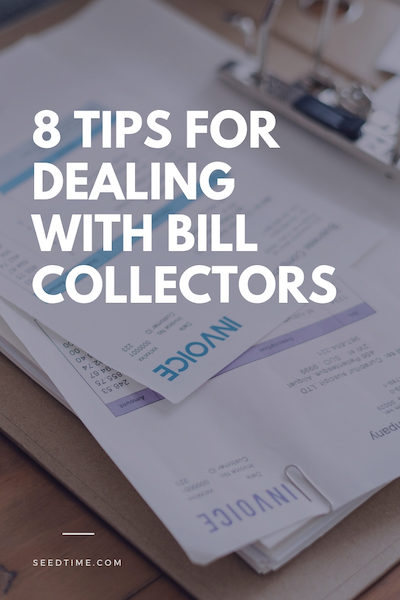
If you have ever been on the receiving end of menacing phone calls from a bill collector, the title of this article probably spiked your blood pressure.
Yes, this is a stressful experience, but it doesn’t have to be a nightmare. These tips will help:
1. Know your rights.
The Fair Debt Collection Practices Act spells out exactly what bill collectors are allowed to do and what they are not allowed to do. Remember: when they violate this Act, they are breaking Federal Law. For example, a bill collector:
- Is not allowed to call before 8 AM or after 9 PM, your local time.
- May not (and I quote from the act) “engage in any conduct the natural consequence of which is to harass, oppress, or abuse any person in connection with the collection of a debt.” Note that threats, obscenity, or calling repeatedly are all forms of harassment and are therefore illegal.
- Must cease all communications if the consumer notifies the collector in writing to do so. Note: this is not normally a wise thing to do because it will often trigger a law suit.
- Must supply – within five days after initial communication – a written notice containing the amount of the debt and the name of the creditor.
2. Understand their tactics.
Because the collector knows that people who are experiencing strong emotions will make decisions they would not make otherwise, he will try to evoke fear, anger or guilt in hopes to get some money from you.
3. Create a budget.
Your goal (to get out from under this debt load) will never happen if you don’t manage your money. Instead of being paralyzed by this anxiety, allow it to motivate you to create a budget and develop a plan for getting this debt out of your life. Doing so will help some of that anxiety melt away.
4. Communicate . . . on your terms.
The collector has a right to contact you, but not harass you by constantly calling you. You should talk to him on your terms: once every two weeks. If he persists in calling more often, remind him that you will talk to him on the agreed date and then hang up.
5. Prioritize your finances.
Reality is this: if you have less money coming in than bills due, someone isn’t going to get paid. You should therefore prioritize your finances so you won’t succumb to the collector’s tactics. Here is a sample priority list — note that credit card payments are at the bottom:
- Groceries.
- Mortgage or rent
- Utilities
- Insurance
- Secured debts
- Gasoline
- Unsecured debts
6. Don’t give electronic access to your account.
Although a bill collector will offer all kinds of inducements for the right to draw money directly from your account, don’t allow him to. Why? Because he might lie to you and take it all.
7. Settle the debt.
Your collector bought your debt at a discount, so he will be open to a debt settlement. Of course the discussion is a moot one unless you have some money, but, in case you happen upon a windfall (do I hear income tax refund?), be prepared to ask for a settlement. Important note: before sending any money for a settlement, insist on getting a written statement from your creditor that paying the agreed amount will “settle this debt in full.”
8. Control your own life.
You are not the first person to be hounded by a collector and you will not be the last. You WILL make it through this. In the meantime, you need to maintain control of your life instead of relinquishing it to a stranger on the telephone.
Readers: have you been contacted by bill collectors? How was your experience? Any tips for other readers?




